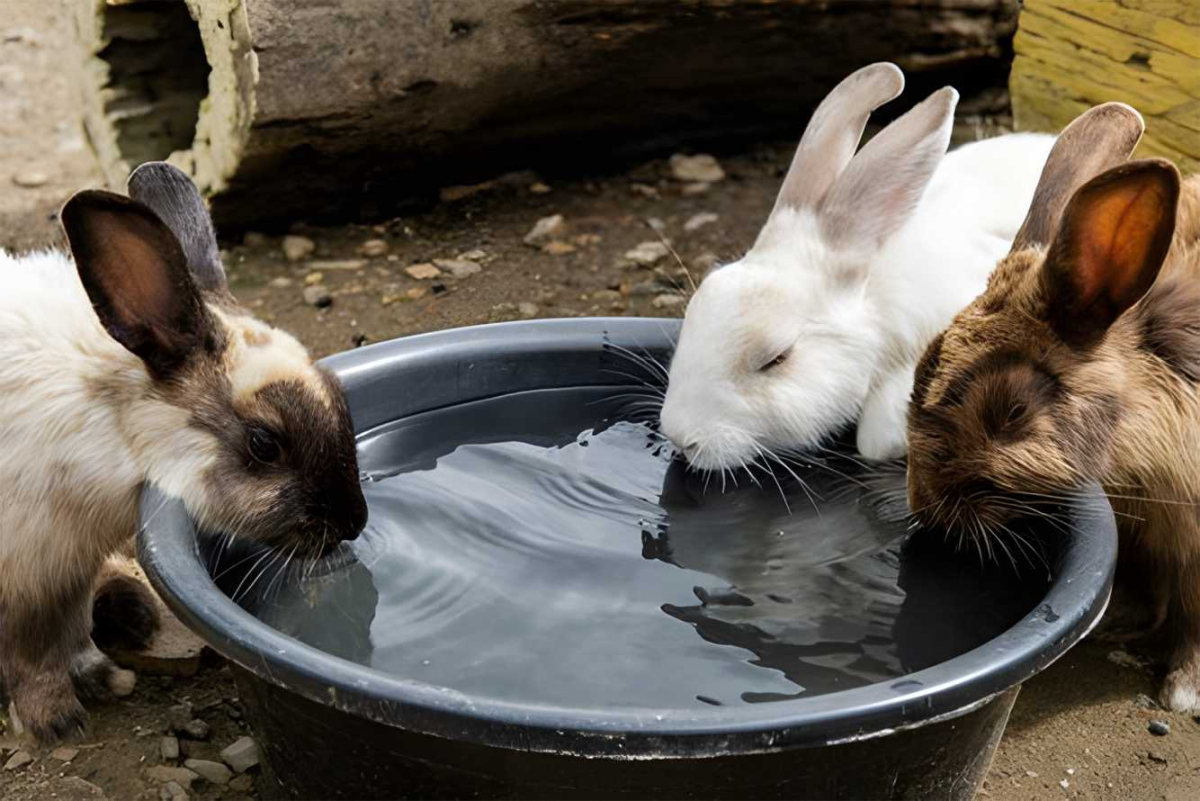How Long Can a Rabbit Go Without Water?
Rabbits are adorable and popular pets known for their fluffy tails and floppy ears. They are also known for their unique dietary needs, and one essential aspect of their diet is water. But have you ever wondered how long a rabbit can go without water? In this article, we will explore the importance of water for rabbits and discuss how long they can survive without it.

The Importance of Water for Rabbits
Water is crucial for the overall well-being of rabbits. It plays a significant role in their digestion, temperature regulation, and overall hydration. Here are a few reasons why water is essential for rabbits:
- Hydration: Just like any other living creature, rabbits need water to survive. Water helps to keep their bodies hydrated, which is vital for all their bodily functions to work properly.
- Digestion: Rabbits have unique digestive systems that require an adequate amount of water to function correctly. Insufficient water intake can lead to digestive issues such as gastrointestinal stasis, which can be life-threatening for rabbits.
- Body Temperature Regulation: Rabbits rely on water to regulate their body temperature. They cannot sweat like humans; instead, they dissipate heat by panting and through their ears. Water helps them cool down when they are too hot.
- Urinary Health: Water is essential for maintaining proper urinary health in rabbits. Sufficient water intake helps prevent the formation of urinary stones and keeps their urinary system functioning optimally.
How Long Can a Rabbit Survive Without Water?
Rabbits are highly dependent on water to survive, and they should have access to fresh, clean water at all times. The absence of water can quickly lead to dehydration, which can have severe consequences. Generally, rabbits should not go more than 24 hours without water. However, several factors can influence how long a rabbit can survive without water:
- Environmental Conditions: The temperature and humidity levels in the rabbit’s environment can affect their water requirements. If it is hot and dry, rabbits may need more water to stay hydrated.
- Diet: The type of food a rabbit consumes can impact their water needs. Fresh vegetables and leafy greens have higher water content, contributing to their overall hydration. A diet lacking in water-rich foods may increase their water requirements.
- Health Conditions: Certain health conditions, such as kidney disease or urinary issues, can increase a rabbit’s water needs. In such cases, depriving them of water even for a short period can be detrimental.
- Age: Younger rabbits, especially those still nursing, have a higher water requirement compared to adult rabbits. They may not be able to survive as long without water.
Tip: It is always better to be safe than sorry when it comes to your rabbit’s water intake. Ensure they have access to fresh water at all times, especially during hot weather or if they have any health issues.
Frequently Asked Questions (FAQs)
1. Can rabbits get enough water from their food?
No, rabbits cannot solely rely on their food to meet their water requirements. While certain foods have higher water content, it is essential to provide fresh water to ensure they stay hydrated.
2. How can I encourage my rabbit to drink more water?
Here are a few tips to encourage your rabbit to drink more water:
- Ensure the water is fresh and clean.
- Place multiple water sources in different areas of their enclosure.
- Use a water bottle or a heavy ceramic bowl to prevent tipping.
- Mix a small amount of unsweetened fruit juice with water to add flavor.
3. What are the signs of dehydration in rabbits?
Some common signs of dehydration in rabbits include:
- Lethargy or lack of energy
- Dry mouth and nose
- Loss of appetite
- Reduced urination
- Sunken eyes
4. Can rabbits drink any type of water?
While tap water is generally safe for rabbits, it can vary depending on where you live. It is always best to consult your veterinarian to determine the most suitable water source for your rabbit.
In conclusion, water is vital for a rabbit’s overall health and well-being. They should have access to fresh water at all times to prevent dehydration and related health issues. While rabbits should not go more than 24 hours without water, it is crucial to consider various factors that can affect their water requirements. When in doubt, always consult your veterinarian for guidance on your rabbit’s specific needs.
Related Articles…
Copyright Notice:
All images featured on this site are sourced from the internet, copyrights belong to respective owners. Should you own any image and require it to be removed, please contact us.